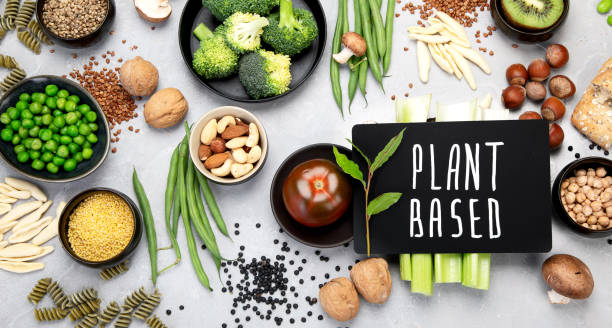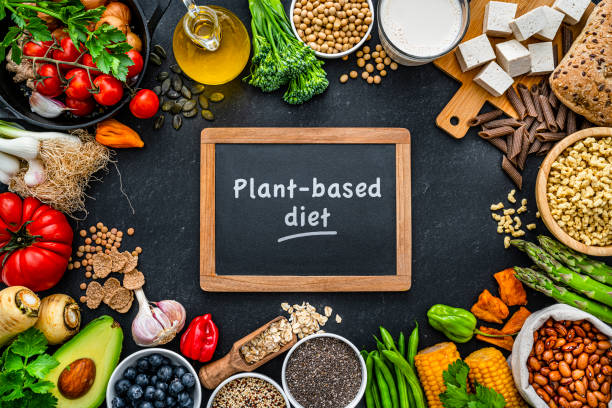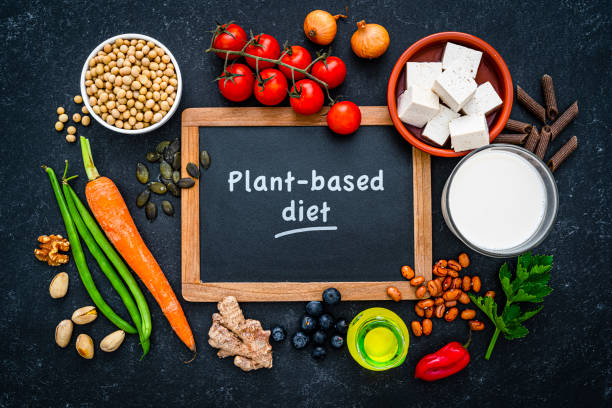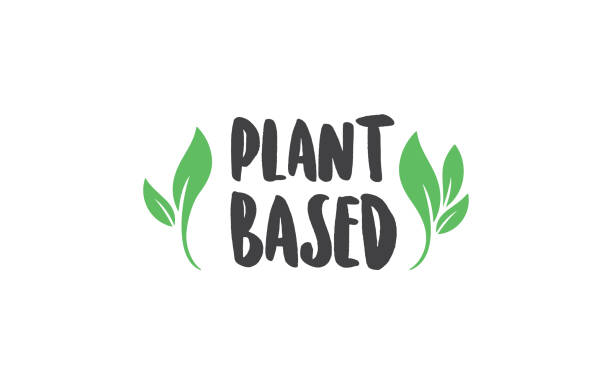What Is a Plant-Based Diet?
A plant-based diet centers around foods that come from plants, such as fruits, vegetables, nuts, seeds, legumes, and whole grains. Unlike a strict vegetarian or vegan diet, it does not require cutting out animal products entirely. Instead, it encourages making plant foods the main focus of your meals while limiting meat, dairy, and other animal-derived ingredients.
This way of eating has grown in popularity because of its many health benefits and positive impact on the environment. People adopt a plant-based diet for different reasons, including improving heart health, managing weight, reducing the risk of chronic diseases, and supporting sustainability. Some choose it for ethical reasons, while others follow it to lower their carbon footprint.
A plant-based diet emphasizes whole, nutrient-dense foods with minimal processing. By consuming more fiber-rich and antioxidant-packed foods, you can support digestion, boost immunity, and promote overall well-being. This approach to eating provides essential vitamins and minerals while reducing unhealthy fats and processed ingredients, leading to a healthier lifestyle and long-term benefits.

Health Benefits of a Plant-Based Diet
Switching to a plant-based diet can have a major impact on your health. Here’s how:
1. Supports Heart Health
Heart disease is one of the top causes of death worldwide, but a plant-based diet can help lower the risk. Research shows that people who eat more plant-based foods have lower cholesterol, healthier blood pressure, and a reduced chance of developing heart disease. This is because plant-based diets focus on whole foods packed with fiber, healthy fats, and essential nutrients that support heart function.
Foods like fruits, vegetables, whole grains, nuts, and seeds provide key heart-protective nutrients such as fiber, potassium, and antioxidants. Fiber helps lower bad cholesterol levels, while potassium supports healthy blood pressure. Antioxidants fight inflammation, which is a major factor in heart disease. By eating a variety of nutrient-dense plant foods, you can strengthen your heart and improve overall cardiovascular health.
2. Aids in Weight Loss
Maintaining a healthy weight can be challenging, but a plant-based diet can help make it easier. This way of eating is naturally lower in calories and higher in fiber, helping you feel full for longer. Because plant-based meals are often packed with nutrient-dense foods, many people find they lose weight without the need for strict calorie counting.
Foods like vegetables, legumes, and whole grains contain plenty of fiber and water, which increases satiety and reduces hunger. Eating more of these foods can help prevent overeating and cravings. Additionally, cutting back on processed foods, refined sugars, and unhealthy fats supports long-term, sustainable weight loss. By focusing on whole, plant-based ingredients, you can manage your weight in a healthier and more natural way.
3. Reduces Risk of Type 2 Diabetes
Type 2 diabetes is a major health concern worldwide, but diet plays a crucial role in prevention. A plant-based diet can help lower the risk by improving insulin sensitivity and stabilizing blood sugar levels. Foods like whole grains, legumes, and vegetables provide essential nutrients that support healthy glucose metabolism.
Research shows that plant-based diets rich in fiber help regulate blood sugar and enhance insulin function. Fiber slows the absorption of sugar into the bloodstream, preventing sudden spikes and crashes. Additionally, plant-based diets are typically lower in unhealthy fats, which can reduce inflammation and support overall metabolic health. By focusing on nutrient-dense, whole foods, you can naturally lower your risk of developing type 2 diabetes while improving overall well-being.
4. Lowers Risk of Certain Cancers
Cancer is one of the leading causes of death, but diet can play a key role in prevention. Research suggests that eating a diet rich in fruits, vegetables, and whole grains may lower the risk of certain cancers. These plant-based foods provide powerful antioxidants and anti-inflammatory compounds that help protect cells from damage.
Nutrients like flavonoids, carotenoids, and polyphenols found in plant foods help defend against harmful free radicals, which can contribute to cancer development. Cruciferous vegetables such as broccoli, kale, and Brussels sprouts contain sulforaphane, a natural compound known for its cancer-fighting properties. By eating a variety of nutrient-dense plant foods, you can support your body’s natural defenses and lower your risk of developing certain cancers.
5. Improves Digestion
Good digestion is essential for overall health, and a plant-based diet can help keep your digestive system running smoothly. Fiber-rich foods from plants promote regular bowel movements, support healthy gut bacteria, and reduce issues like bloating and constipation. Since fiber adds bulk to stool and helps it pass more easily, it plays a key role in digestive health.
Eating a variety of plant-based foods also supports a diverse gut microbiome, which is linked to better digestion and a stronger immune system. Prebiotic foods like garlic, onions, and bananas feed the good bacteria in your gut, helping them thrive. These beneficial bacteria aid in breaking down food, improving nutrient absorption, and reducing inflammation in the digestive tract. By focusing on whole, fiber-rich foods, you can improve digestion and support long-term gut health.

Best Foods for a Plant-Based Diet
To get the most health benefits from a plant-based diet, focus on eating a variety of nutrient-dense, whole foods. These foods provide essential vitamins, minerals, and fiber to support overall well-being.
- Fruits & Vegetables: Berries, oranges, spinach, kale, carrots, and broccoli are packed with antioxidants, fiber, and essential vitamins that support immunity and overall health.
- Whole Grains: Brown rice, quinoa, oats, and whole wheat products provide complex carbohydrates, fiber, and essential nutrients for sustained energy and digestion.
- Legumes & Beans: Chickpeas, black beans, lentils, and peas are excellent sources of plant-based protein, iron, and fiber, helping with muscle repair and blood sugar control.
- Nuts & Seeds: Almonds, chia seeds, flaxseeds, and walnuts offer healthy fats, protein, and important minerals that support heart and brain health.
- Plant-Based Proteins: Tofu, tempeh, seitan, and edamame serve as great meat alternatives, providing high-quality protein without saturated fat.
- Healthy Fats: Avocados, olives, and nut butters contribute to heart health, brain function, and overall cell growth.
Eating a diverse selection of these foods ensures you get all the essential nutrients needed for energy, immune function, and long-term health.
How to Transition to a Plant-Based Diet
Switching to a plant-based diet doesn’t have to be overwhelming. By making small, manageable changes, you can build lasting habits that support your health. Here are some simple steps to get started:
- Start Small
Begin by incorporating more plant-based meals into your routine. Try “Meatless Monday” or swap dairy milk for almond, oat, or soy milk. Gradually reduce meat and processed foods while increasing fruits, vegetables, and whole grains. - Focus on Whole Foods
While many processed plant-based foods are available, they can be high in additives, sodium, and unhealthy fats. Prioritize whole, nutrient-dense foods like fresh produce, legumes, nuts, and seeds for optimal health. - Experiment with New Recipes
Find plant-based versions of your favorite meals. Try lentil soup, veggie stir-fry, or black bean tacos. Experimenting with different ingredients and cooking methods can make plant-based eating exciting and enjoyable. - Plan Your Meals
Meal prepping can help you stay on track and avoid unhealthy convenience foods. Stock up on staples like quinoa, brown rice, canned beans, and fresh vegetables to make meal preparation easier. - Read Labels
Many processed foods contain hidden animal ingredients such as gelatin, whey, and casein. Checking labels can help you make informed choices and avoid unexpected animal-derived additives. - Stay Balanced
Ensure you’re getting enough essential nutrients like protein, iron, and vitamin B12. Include a variety of plant-based protein sources, and consider fortified foods or supplements if needed.
By making gradual changes and trying new foods, transitioning to a plant-based diet can be a smooth and enjoyable process. Focus on progress rather than perfection, and find what works best for you!

Common Myths About Plant-Based Diets
There are many misconceptions about plant-based eating that can discourage people from trying it. Here are some of the most common myths and the truth behind them:
“You Won’t Get Enough Protein”
Many believe that animal products are the only reliable protein source, but plant-based diets can easily provide all the protein your body needs. Foods like beans, lentils, tofu, quinoa, nuts, and seeds are rich in protein and essential amino acids, supporting muscle growth and overall health.
“It’s Too Expensive”
Some think eating plant-based is costly, but it can actually be more budget-friendly than a diet centered on meat and dairy. Staples like rice, beans, lentils, oats, and seasonal vegetables are affordable and widely available. Buying in bulk and meal prepping can further reduce costs.
“You’ll Always Be Hungry”
A common concern is that plant-based meals won’t be filling, but a fiber-rich diet helps keep you full longer. Foods like whole grains, legumes, and vegetables provide steady energy, balance blood sugar levels, and prevent cravings. Eating a variety of nutrient-dense plant foods ensures long-lasting satiety and sustained energy throughout the day.
Final Thoughts
A plant-based diet can improve your health, increase your energy, and support a more sustainable planet. Whether your goal is to lose weight, reduce the risk of chronic diseases, or simply feel your best, adding more plant-based foods to your meals is a positive step toward better well-being.
The key to success is starting small and making gradual changes. Swap out processed foods for whole, nutrient-dense options, experiment with new plant-based recipes, and discover flavors you love. Over time, these small adjustments can lead to lasting health benefits.
Are you considering a plant-based diet? Share your thoughts, experiences, or favorite plant-based meals in the comments below—we’d love to hear from you!



